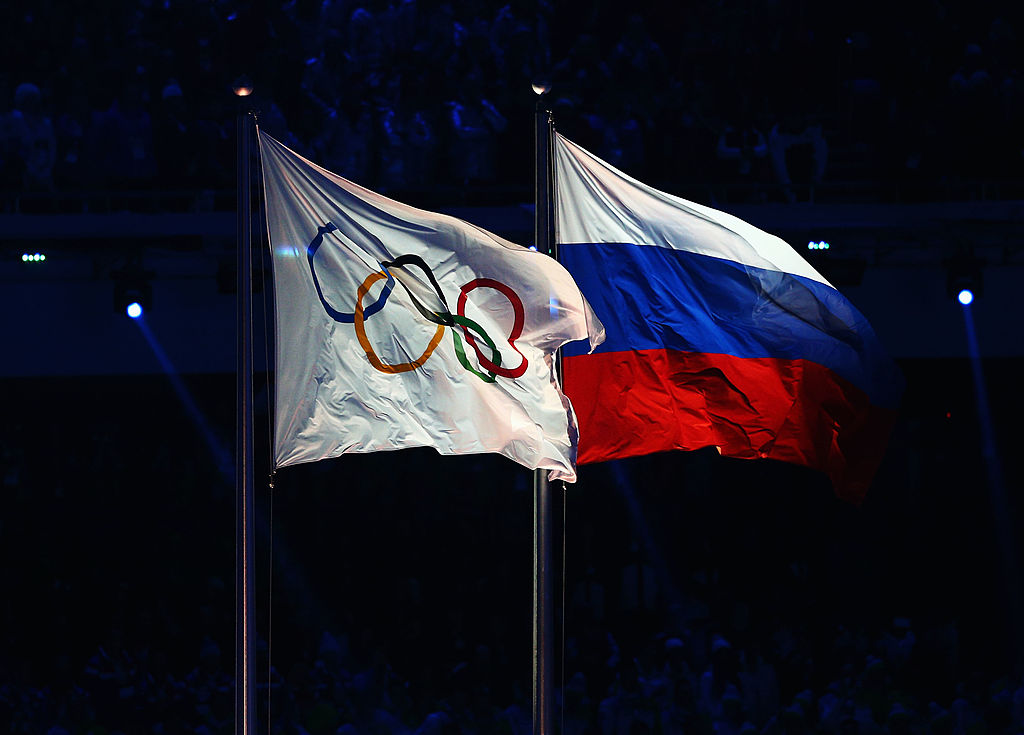CAS slams Russia doping scheme as 'cover up of cover-up'
WADA disappointed as CAS reduces ban on Russia to two years, excluding Paris 2024 Olympic Games

The CAS published a scathing 186-page decision on Thursday that slams Russian authorities for doubling down on a doping cover-up in attempting to further thwart the anti-doping process by manipulating anti-doping test data with "deliberate, sophisticated and brazen alterations, amendments and deletions" that were "intentionally carried out in order to remove or obfuscate evidence of improper activities carried out by the Moscow Laboratory."
The CAS did not, however, agree to the World Anti-Doping Agency's recommended four-year ban, deciding instead to reduce it to two years to include the next two Olympic Games but not the Summer Games in Paris in 2024.
WADA President Witold Bańka expressed disappointment that the CAS did not agree to all of the proposed punishments "which we felt were proportionate to the egregious nature of the offences committed by the Russian authorities as they sought to cover up the details of their institutionalized doping scheme.
"The full CAS reasoned decision shows clearly that WADA successfully proved its case and exposed the Russian authorities’ brazen attempts to manipulate data from the Moscow Laboratory in an effort to thwart our investigations. We are satisfied that this landmark decision also upholds the strong investigative and legal framework put in place by WADA in recent years that underpins the anti-doping system."
The case dates back to before the 2014 Olympic Winter Games in Sochi, where athletes' samples were swapped for 'clean' samples (sample swapping) or doping positives 'disappeared' in the laboratory computer system (LIMS). The German television outlet ARD first made the doping scheme public in December 2014, after the Games.
WADA followed up on the report first with an independent commission chaired by former WADA head Dick Pound, then, after whistleblower Grigory Rodchenkov claimed there was a 'sophisticated state-sponsored doping program in Russian sport', WADA commissioned an independent report authored by Richard McLaren to investigate the claims, then declared its anti-doping authority RUSADA non-compliant with the WADA code. It led to some Russians, mainly in athletics, being barred from competing in the 2016 Olympic Games in Rio de Janeiro, but also included members of the team pursuit squad.
In order to be reinstated, WADA required RUSADA to provide access to its LIMS system to identify doped athletes and clear others, but when after much delay RUSADA provided the data, they had manipulated it in an attempt to frame Rodchenkov.
Get The Leadout Newsletter
The latest race content, interviews, features, reviews and expert buying guides, direct to your inbox!
In its decision, which prohibits athletes from displaying the Russian flag in the World Championships and Olympic Games, the CAS slammed Russia's underhanded tactics.
"As WADA submitted, far from recognising the opportunity to come clean and draw a line under a scandal that has plagued, and drained resources from, international sport for years, the Russian authorities unfortunately saw it as an opportunity to fraudulently promote their fabricated defence strategy and mitigate or avoid the consequences of the doping scheme," the CAS Panel wrote.
"Rather than providing access to the data in the spirit of transparency and data preservation reflected in the correspondence, the Russian authorities in late 2018 and January 2019 engaged in extensive manipulation of the Moscow data.
"In crude terms, the non-compliance in this case is an attempt to cover up evidence of the doping and anti-detection scheme described in the McLaren Reports.
"When the cover-up of the doping scheme began to unravel, the solution adopted by the Russian authorities was not to come clean but rather to double down by seeking to cover up the cover-up."
The CAS also noted that, "These manipulations show that the Russian authorities remain as willing as ever to interfere with, and corrupt, the anti-doping system."
But they defended the decision not to extend the Russian ban through Paris 2024, writing "WADA has sought to have the Signatory Consequences imposed for a four-year period. However, it noted that the four-year period was only ever intended to cover one edition of each of the summer and winter Olympic/Paralympic Games."
The Olympic Games in Tokyo were postponed to this year because of the coronavirus pandemic of 2020.
Russian sanctions
- RUSADA declared non-compliant - athletes must have required anti-doping controls performed by a different agency
- Russian government representatives barred from sitting on any board or committee of WADA signatories and cannot be accredited for or even attend Olympic Games or World Championships
- Russia cannot host or bid to host Olympic Games or World Championships
- Russian flag will not be flown at Olympic Games or World Championships
- Athletes must compete as independent
- Russian national anthem will not be played for medal ceremonies
- RUSADA must pay WADA US $1.27 million
- Russia must pay 80 per cent of arbitration costs including CHF 400,000 to WADA
- RUSADA must, with WADA, conduct investigations into any cases impacted by data deletions
- RUSADA must agree to international observers, provide quarterly reports with proof it is free from interference from the Russian government
- RUSADA must allow outside anti-doping agencies to test and investigate Russian athletes
Cyclingnews is the world's leader in English-language coverage of professional cycling. Started in 1995 by University of Newcastle professor Bill Mitchell, the site was one of the first to provide breaking news and results over the internet in English. The site was purchased by Knapp Communications in 1999, and owner Gerard Knapp built it into the definitive voice of pro cycling. Since then, major publishing house Future PLC has owned the site and expanded it to include top features, news, results, photos and tech reporting. The site continues to be the most comprehensive and authoritative English voice in professional cycling.